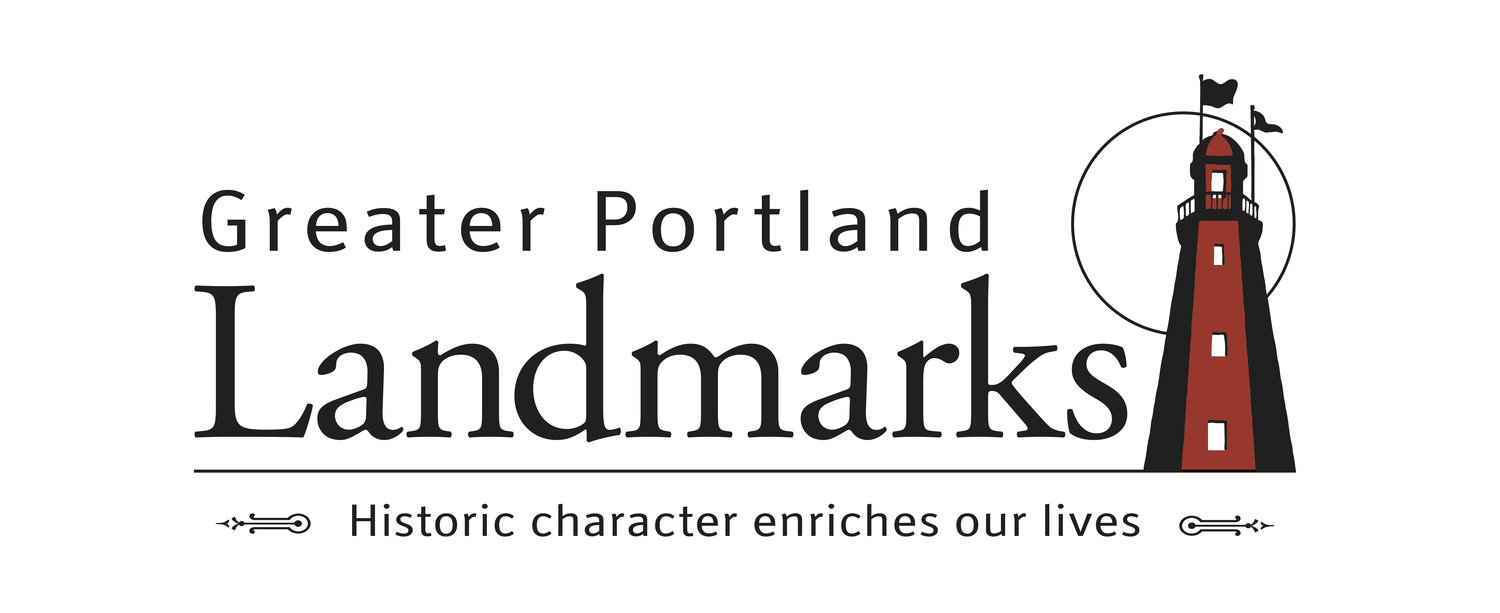In this election, Portland residents will vote on several referendums, including Question C: An Act to Implement a Green New Deal for Portland. This question proposes six pages of complex land use policies. Because the policies are being implemented by referendum, they cannot be altered – except through another referendum – for five years.
We know from experience that new land use policies often require adjustments and revisions after they are enacted. A good example is the Form-Based Code that was created for the India Street neighborhood. Soon after its implementation, in response to questions from property owners, designers and developers, the code was amended to clarify confusing language.
Greater Portland Landmarks shares many of the goals intended by the proposed legislation, and we look forward to working with People First Portland and all Portland residents to achieve these objectives:
Increased affordability and quantity of new housing units, particularly through the reuse of buildings.
apprenticeship programs that bring new workers into the preservation trades.
increased energy efficiency and sustainability projects, like solar and green roofs, that support sustainability goals and combat the threat climate change poses to our coastal communities and historic sites.
While we support the intentions of Question C, we believe that it will have unintended outcomes that negatively impact sustainable development and affordable housing. With no efficient means to modify the policy for five years, this negative impact may slow the construction of more sustainable buildings as well as affordable and workforce housing for years.
Question C will also have a potentially negative impact on the rehabilitation of historic buildings in Portland, a process which has resulted in a significant number of new housing units in just the last five years. The requirements of Question C, while well-intentioned, will make similar planned and future projects less viable, potentially resulting in the demolition of historic structures that could have been rehabilitated, and an overall loss of housing units. Specifically, Question C:
creates a complex process of green building standard exemptions for historic buildings pits preservation against sustainability, when the two are compatible − reuse of historic structures is one of the greenest types of development.
complicates projects using rehabilitation tax credits (a financial incentive often used to create housing), which are governed by federal standards.
creates potential problems with defining the change of use of a historic building as a renovation.
Greater Portland Landmarks understands that what we think of as an open, public process is not as inclusive as we have believed it to be. We also understand that our process for making policy should be more open and accessible to the wider community of Portland earlier in the policy-making process. There is room for improvement here – by and for all of us.
We encourage you to vote against Question C. We encourage you to elect local and state leaders who reflect your values, and we encourage you join us in adding your voice in helping shape better, more inclusive, community-driven solutions in Portland.
